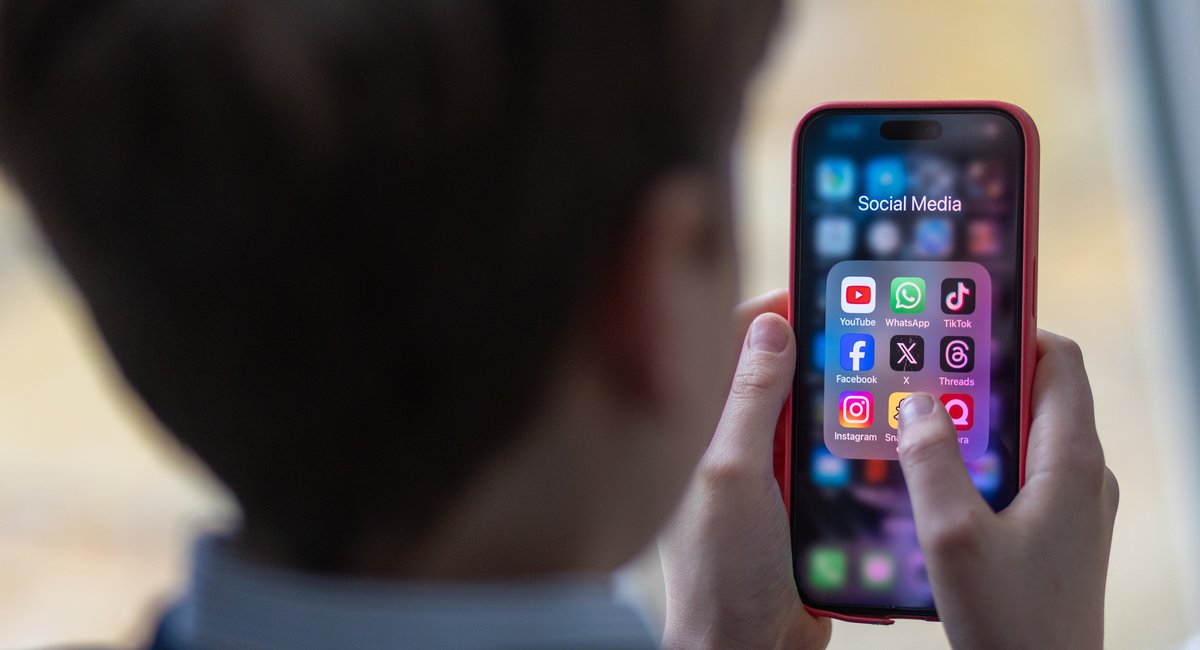More than 900,000 New York City public school students will return to classes on Thursday without a citywide smartphone ban after Mayor Eric Adams’ last-minute announcement to delay its rollout, leaving some educators scrambling to craft their own policies for their classrooms.
“The phones are incredibly addictive and not having a policy in place to support the students not using them is doing them a serious disservice,” said Manhattan high school teacher Mariel Liebman, who launched a fundraising campaign to pay for a phone locker for her class.
Citing distraction and the toxic effects of social media, Schools Chancellor David Banks said in June he’d announce a plan to restrict smartphones in classrooms during the summer. But last week, Mayor Eric Adams confirmed the school system wasn’t ready to implement an across-the-board ban.
“There will be some action in the upcoming school year,” he said. “But the extent of a full ban, we’re not there yet.”
Adams said he wanted more time to troubleshoot with educators and parents. “We just got to get it right,” he said.
Even without a citywide ban in place, around 350 of the city’s 1,600 public schools currently restrict cellphones during the day, and another 500 plan on implementing restrictions in the upcoming school year, according to the education department.
Still, some parents and teachers said they’re frustrated by the delay, especially as other school districts move forward. Last year, Florida passed a law banning smartphone use during class time. And this summer, Indiana passed a law restricting wireless devices, which recently went into effect. Officials in Virginia and Los Angeles said they will implement bans early next year. New York Gov. Kathy Hochul has also said she’s exploring legislation that would restrict smartphones in schools across the state.
“It’s maddening,” said Jo Cogan, a New York City mom of four kids at four different schools, each with different phone policies. “To me it’s just logical to not have phones in schools. I don’t understand what the holdup is. I would like there to be a universal ban.”
Other parents said it made sense to take more time to work out the details.
“Going phone-free takes planning, especially in the largest school district in the country,” said Jonathan Haidt, author of “The Anxious Generation,” a New York City Public Schools parent, and a leading voice in the campaign to remove smartphones from schools nationwide. “This can’t be rushed. Some small private schools have been able to make the change in just a few months, but of course it will take longer for the whole of New York City to make this change.”
Adams said he was still mulling over questions raised by educators and parents since early summer.
Teachers and principals want to know how the phones will be stored, who is responsible for collecting them, and whether the city or individual schools will have to pay for the hardware to store them. (Yondr pouches, which store smartphones, block their reception, and are used at some schools and concert venues, retail for $25 to $30 each.)
The city’s teachers union has also raised concerns about how rules will be enforced, arguing that educators shouldn’t be solely responsible for enforcement.
“Educators know the impact cellphones have on their students and their classrooms,” said United Federation of Teachers President Michael Mulgrew. “Taking time to get a ban right, though, makes sense.”
Others worry about an increase in school policing.
“I think we have to be very wary as a city of adding new ways for kids to get in trouble,” said Johanna Miller at the New York Civil Liberties Union. She worried the school safety officers might become the default enforcers of the cellphone ban.
Many parents have also said they want to be able to contact their kids in an emergency, and some parents of students with disabilities have worried about kids who rely on technology for health or learning, including diabetic kids who use their phones for sugar monitoring.
And students have asked whether any policy will be effective, noting that they’ve already found plenty of loopholes in the city’s current patchwork of policies, including subbing in burner phones, breaking into Yondr pouches or just taking extra long bathroom breaks to text with friends.
